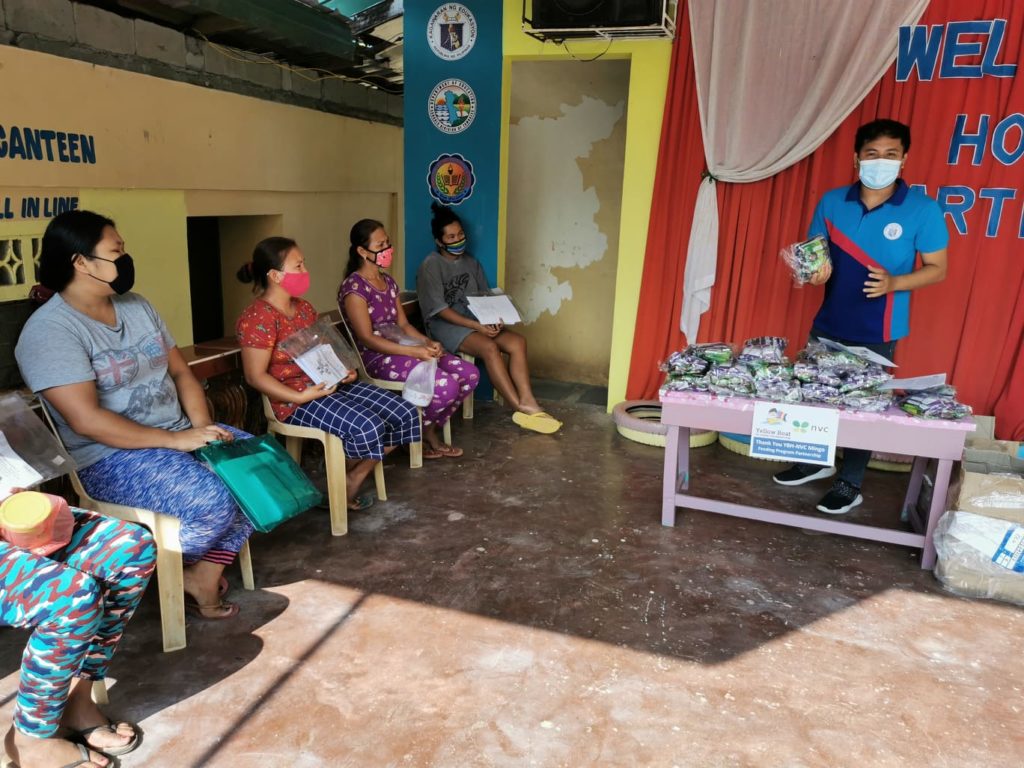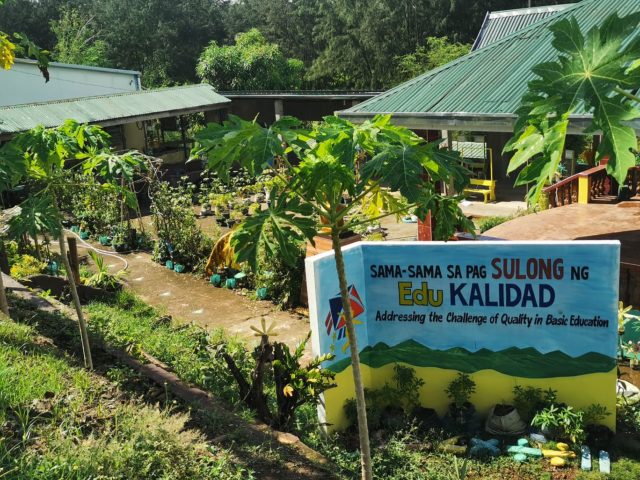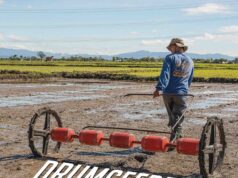September 2, 2022—As the conduct of in-person classes in all public schools regionwide resumed, the Department of Education Region III through the Education Support Services Division seeks to intensify the implementation of the Enhaced Gulayan sa Paaralan Program (EGPP) in all public elementary and secondary schools in Central Luzon.
Gulayan sa Paaralan Program (GPP) is one of the programs under the National Greening Program of the Department of Education. The GPP is one of the mechanisms the government implemented to promote and raise awareness to address food insecurity in the country. Food insecurity is the state where people lack regular access to enough safe and nutritious food for normal growth and development and active and healthy life.
As a response to this, the Department of Education Regional Office III (DepEd) RO III inked a partnership with Department of Agriculture Regional Field Office III (DA-RFO III) and East West Seed Foundation for efficient and effective implementation of Enhanced Gulayan sa Paaralan Program (EGPP) though Project GAME “Gulayan para sa Aktibong Mag-aaral ng rEhiyon tatlo”. This project will help schools to become self-reliant and self-sufficient in addressing the nutritional deficiency among the learners.

“The project will also serve as an eye-opener among the learners on the significant impact of agriculture through the Enhanced Gulayan sa Paaralan Program- Project GAME to human-wellbeing for its nutritional value as well as its economic benefits and most importantly it serves as a life support system. The product that can be harvested and consumed can help to enhance the academic performance of the learners through proper nutrition obtained from the harvested vegetables from the school, home, and community,” RD May Eclar said.
Each school shall implement E-GPP-Project GAME by allotting at least 200 square meters for the establishment a vegetable garden with the engagement of stakeholders such as the Parent Teacher Association (PTA), National Government Agencies (NGAs), Non-Government Organizations (NGOs), and other entities that may consider significant to the implementation of the project.

Schools with limited area for the implementation of EGPP-Project GAME may use alternative gardening methods such as container gardening, inground gardening, raised bed gardening, vertical gardening, hydroponic gardening, aquaponic gardening, square foot gardening, upside-down gardening, hanging gardening, and other methods appropriate to the schools.
A variety of indigenous vegetables shall be planted that are rich in protein, carbohydrates, vitamin A and iron to address micro deficiencies such as protein-energy deficiencies, Vitamin A deficiencies (IDA), Iron deficiency Anemia (IDA), and Iodine deficiency Disorder (IDD). Based on the FNRI, the following indigenous vegetables plants are rich in vitamins and minerals: Alugbati, Alukon, Katuray, Kulitis, Kadyos, Kalabasa, Labanos, Labong Malunggay, Mustasa, Pako, Patola, Pipino, Saluyot, Sayote, Sigarilyas, Sitaw, Talinum, Talong and Upo. Schools may propagate other vegetable plants suitable in their area.

Each school shall also establish a nursery/ seed bank for the propagation of vegetable seedlings, fruit-bearing, and forest tree seedlings to sustain the seedling requirements of the school for the whole year. The school may coordinate with local agricultural office for the provision of seeds and the proper guidance on the establishment of a nursery/ seed bank, however, if a school has not have enough space for the establishment of such purpose may forge partnerships with the community or barangay officials to utilize the vacant lot near the school to build nursery/ seed bank.
The 60 % harvested product from the EGPP-Project GAME shall be utilized in the school feeding program, while the remaining 40 % may be sold in the community/ market as part of the income generating project of school. The income may utilize for the provision of ingredients for school feeding, gardening tools, seeds, and other materials to sustain the project.





